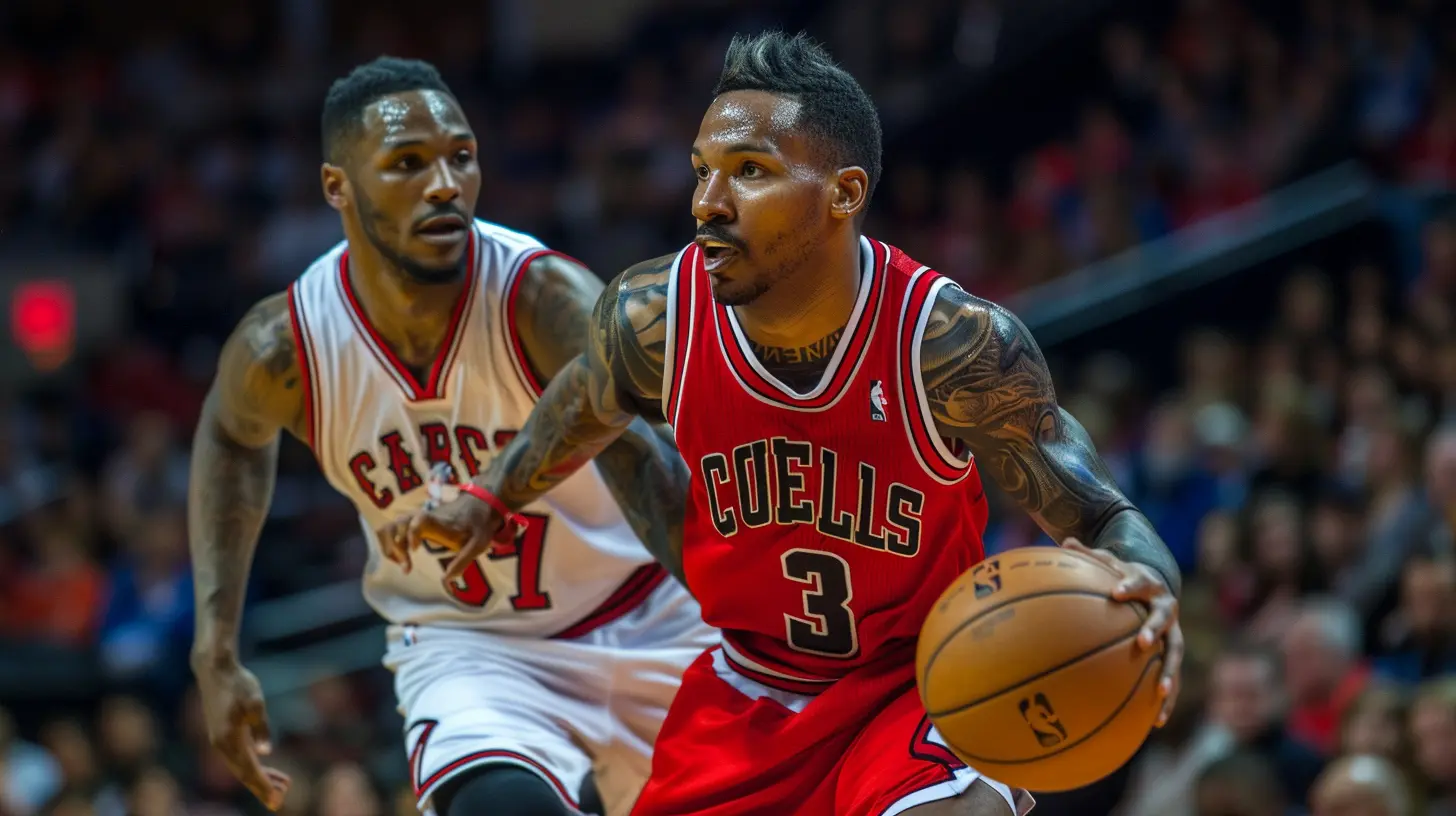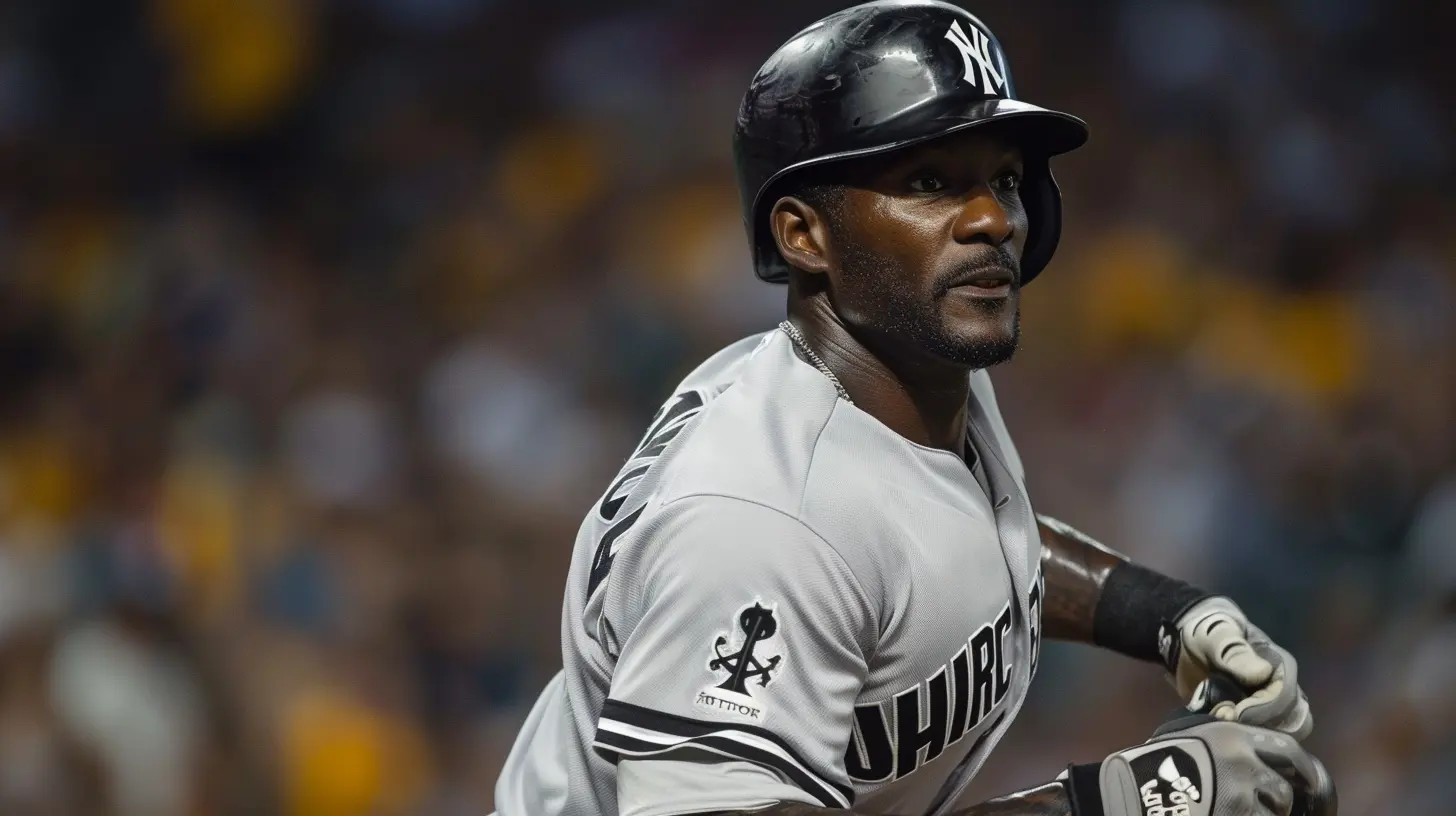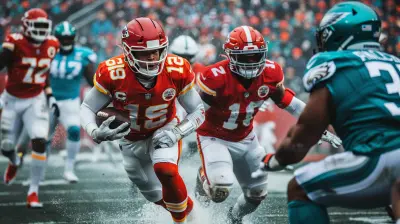Timing is Everything: Why Some Trades Happen Late in the Season
24 April 2025
Player trades are one of the most exciting aspects of professional sports, sparking endless debates among fans and experts alike. Whether it's the NBA, NFL, MLB, or NHL, trades can shape the destiny of a team, turning them from playoff hopefuls into championship contenders—or, on the flip side, causing them to stumble. But if you've been following any league for a while, you might have noticed something curious: some of the biggest, most impactful trades don't happen until late in the season. Why is that?
In the world of sports, timing really is everything. While trades can happen at any point, there's a reason why some of the most significant moves often come together just before the trade deadline. Teams wait, strategize, and sometimes even gamble, all in the hope of finding that perfect trade that tips the scales in their favor. But what makes these late-season trades so special? Let’s dive deep into the reasons behind the wait and why some trades only happen when the clock is ticking down.

Teams Assess Their Position
One of the main reasons trades happen later in the season is simple: teams need time to figure out where they stand. In the early stages of any sports season, hope is in the air. Every team believes they're a contender. But as games are played, reality starts to set in. Some teams emerge as legitimate contenders, while others realize they're in for a long, grueling season.For teams with championship aspirations, the later part of the season is when they can assess their strengths and weaknesses. By this point, they have a clearer understanding of what’s working and what isn’t. If their defense has been porous, they might look for a defensive specialist. If their bench players haven’t been producing, they could seek a veteran presence to provide stability.
Essentially, the later it gets, the more data teams have, and the more confident they feel about making the right move. It’s like waiting to buy a house. You want to be sure you've inspected every corner before you commit.

The Trade Deadline Creates Urgency
Let’s be real: deadlines make people do things. Whether it’s cramming for an exam or finishing a work project, there's nothing like a ticking clock to push people into action. The same applies in sports. The trade deadline is a hard stop for any further deals, and it creates a sense of urgency that can break a stalemate between teams.In the weeks leading up to the deadline, teams may flirt with potential trades, but they often hold off until the last minute, waiting to see how things unfold. After all, no one wants to rush into a deal and regret it later. But as the deadline approaches, teams are forced to make decisions. Do they pull the trigger and make a move, or do they stand pat and risk missing out?
It’s like shopping for a Black Friday deal. Sure, you might want that TV, but you're hoping the price drops just a little more before you commit. As the sale ends, you're faced with a choice: buy now or risk missing out entirely.

Contract Situations and Expiring Deals
Another big reason some trades happen late in the season has to do with player contracts, specifically expiring ones. Teams know that if a player's contract is about to expire, they have a limited window to get something in return for them before they potentially walk away in free agency.For teams that are out of playoff contention, trading a star with an expiring contract can be a smart way to get future assets, like draft picks or younger players. It’s a way of saying, "We’re not winning this year, so let’s build for the future." On the other hand, for teams in the playoff hunt, acquiring a player on an expiring contract can be a low-risk, high-reward move. If the player helps them win a championship, great! If not, at least they didn’t commit to a long-term deal.
It’s a bit like selling your car before it breaks down completely. You know its value is only going to decrease, so you trade it in while you can still get something for it.

Injuries Force Teams to Reevaluate
Injuries are a part of every sport, and they can completely change a team’s plans. Early in the season, teams might feel confident about their roster, only for a key player to go down with a long-term injury. Suddenly, their well-laid plans are thrown into chaos, and they’re forced to make a move they hadn’t anticipated.In these cases, late-season trades are often about damage control. Teams have to pivot quickly, looking for replacements who can keep their championship hopes alive. It’s not always ideal, but sometimes, it’s the only option.
Think of it like planning a road trip. You’ve got everything packed and ready to go, but halfway through, your car breaks down. You’ve got to scramble to find a rental to keep the trip going. It’s not your first choice, but it beats being stuck on the side of the road.
Market Dynamics and Trade Leverage
Late-season trades are also influenced by market dynamics and leverage. Early in the season, sellers (teams looking to offload players) typically ask for a high price. They know buyers are eager to improve their teams, and they’re in no rush to move their assets. But as the season progresses and the deadline looms, the leverage starts to shift.Sellers may realize that holding onto a player isn’t going to benefit them, especially if that player is on an expiring contract or unhappy with the team. Meanwhile, buyers might be more willing to meet the asking price if they feel the player is the missing piece to their championship puzzle.
It’s a delicate dance, with both sides trying to get the best deal. But as the deadline approaches, the pressure mounts, and compromises are made. It’s like a game of poker, where both players are bluffing, but eventually, someone has to put their cards on the table.
The Playoff Push
As the season winds down, the playoff picture becomes clearer. Teams on the bubble—those hovering around the final playoff spots—often become the most aggressive in the trade market. For these teams, a single trade can be the difference between making the playoffs or missing out entirely.This playoff push adds a layer of urgency to late-season trades. Teams don’t just want to make the playoffs; they want to go in with momentum. Acquiring a key player late in the season can give a team that extra boost they need to finish strong. It’s like adding a turbo button to your car right when you need it most.
For teams that are already comfortably in the playoff picture, late-season trades can be about fine-tuning. Maybe they don’t need a major overhaul, but a small tweak here or there—a role player, a defensive stopper, or a three-point shooter—can make all the difference come playoff time.
Chemistry and Fit
While talent is important, team chemistry plays a huge role in success, especially in the playoffs. Teams are often hesitant to make big moves early in the season because they want to see how their current roster gels. Sometimes, the pieces just need a little time to click. But as the season progresses, teams can more accurately assess whether or not their chemistry is working.If a team’s chemistry isn’t where it needs to be, they may look for a late-season trade to bring in a player who fits better. This can be tricky because you don’t want to disrupt the locker room too much, but sometimes a fresh face is exactly what’s needed to bring a team together.
It’s like cooking—sometimes, the recipe needs a little tweaking. You don't want to start over from scratch, but adding a pinch of this or a dash of that can make all the difference.
GMs and Coaches Trying to Save Their Jobs
Let’s not forget that the people making these trades—general managers and coaches—are often fighting for their jobs. If a team is underperforming, the front office and coaching staff may feel pressure to make a move, hoping that a trade can change the team’s fortunes and, in turn, save their jobs.Late-season trades can sometimes be a last-ditch effort to turn things around. If a team is struggling, a big trade can buy the GM or coach some time, especially if the move leads to a playoff run. It’s a risky strategy, but when your job is on the line, sometimes you’ve got to roll the dice.
Conclusion
In sports, as in life, timing is everything. Late-season trades happen for a variety of reasons—teams reassessing their position, contract situations, injuries, market dynamics, and the playoff push. The trade deadline adds urgency, forcing teams to make decisions that can shape their future. While some trades happen early, many of the most impactful moves are made when the clock is ticking down, and the stakes are at their highest.So, the next time you see a big trade go down just before the deadline, remember: there’s a reason they waited. Timing, after all, can be the difference between winning it all and going home empty-handed.
all images in this post were generated using AI tools
Category:
Player TradesAuthor:

Easton Simmons
Discussion
rate this article
6 comments
Jordan Weber
Timing impacts trade success and team dynamics.
May 7, 2025 at 1:07 PM

Easton Simmons
Absolutely! Timing can influence both the effectiveness of trades and the cohesion of the team, often determining overall success.
Rachel Sullivan
Great read! Timing really is the secret sauce in sports trades. It’s like waiting for the perfect moment to hit a home run! Here’s to hoping our teams make the right moves when it counts! ⚾️🚀
April 30, 2025 at 4:22 AM

Easton Simmons
Thank you! Timing truly is crucial, and I hope our teams seize those perfect moments too! ⚾️
Courtney Gutierrez
Perfect timing makes all the difference!
April 29, 2025 at 11:20 AM

Easton Simmons
Absolutely! Timing can truly transform a trade's impact and success.
Megan McCarty
Great insights! Timing truly plays a crucial role in trades, especially late in the season. The strategic decisions teams make can significantly impact their playoff chances. Looking forward to seeing how these trades unfold!
April 28, 2025 at 1:07 PM

Easton Simmons
Thank you! I completely agree—timing can make all the difference in shaping a team's playoff future. Excited to see how it all plays out!
Inez Davis
Late-season trades can redefine team dynamics, capitalizing on momentum and urgency for success.
April 27, 2025 at 4:00 AM

Easton Simmons
Absolutely! Late-season trades can strategically shift team dynamics, leveraging urgency and momentum to enhance playoff prospects.
Marlowe Lopez
Interesting perspective—timing truly shapes outcomes!
April 24, 2025 at 8:34 PM

Easton Simmons
Thank you! Timing can indeed be a game-changer in the world of trades. I'm glad you found the perspective interesting!




